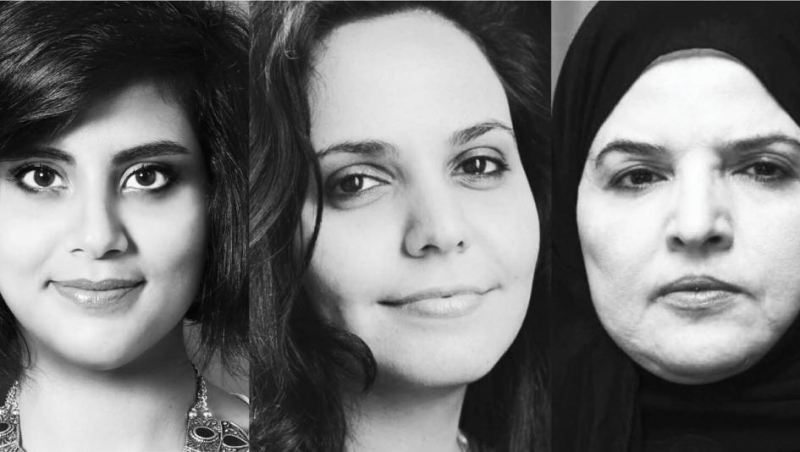On 13 October 2020, Al Jazeera broke the news that Saudi Arabia is poised to be elected to the UN Human Rights Council. Human rights defenders across the globe had little time to brace themselves for the update on such a colossal and blatant rejection of human rights activism built up in the kingdom. This shocking news comes only one year after the UN Special Rapporteur on Extrajudicial Killings harshly condemned the Kingdom of Saudi Arabia for the murder of activist and journalist Jamal Khashoggi. Human Rights Watch and Amnesty International have scrupulously documented countless human rights abuses in Saudi Arabia in the last year alone, verifying that the kingdom’s culture of impunity remains unabated even after international calls for reform.
While Saudi officials have been linked with innumerable human rights violations, including arbitrary detention, forced incommunicado disappearance, extrajudicial killings, mass arrests, sexual abuse, torture, and inhumane detention conditions, few activist groups are as mercilessly targeted as women’s rights defenders are. The crackdown on women’s rights advocacy has left prominent activists like Loujain al-Hathloul imprisoned since 2018 and exposed to brutal acts of reprisal from Saudi authorities behind closed doors. Al-Hathloul and her co-activists Aziza al-Yousef, Eman al-Nafjan, Nouf Abdelaziz, Mayaa al-Zahrani, Samar Badawi, Nasima al-Sada, and Hatoon al-Fassi, all women’s rights activists, were systematically targeted and harassed even before their arrests in May and June 2018. These women were all involved in peacefully protesting or voicing dissent against Saudi Arabia’s oppressive male guardianship system, which has reached de facto law status in the kingdom. They were also particularly active in the movement to lift the ban on women driving, a highly anticipated law to be passed on 24 June 2018, shortly after the activists’ “coincidental” joint arrests.
Charges leveled against these women were linked with Saudi Arabia’s notoriously ambiguous cybercrime law, which bans “producing something that harms public order, religious values, public morals, the sanctity of private life, or authoring, sending, or storing it via an information network.” As of August 2020, the women remaining in detention, including Al-Hathloul and Badawi, have not been sentenced – this is over two years after their initial arrests. Moreover, they have been subjected to horrendous physical suffering behind bars, including confirmed reports of mental and physical torture, electrocution, solitary confinement, deprivation of medical services, sexual abuse, forced standing, and deprivation of legal representation.
Saudi Arabia has nominally ratified key UN human rights conventions, including the International Covenant on Civil and Political Rights, the Convention against Torture and Other Cruel Inhuman or Degrading Treatment or Punishment, the Convention for the Protection of All Persons from Enforced Disappearance, and the Convention on the Elimination of All Forms of Discrimination against Women. Under these international obligations, Saudi Arabia has made clear and binding commitments to uphold the legitimate rights of its people, including the rights of freedom of speech and peaceful assembly. Moreover, Saudi Arabia is subject to the explicit UN Standard Minimum Rules for the Treatment of Prisoners, which outright demands fair treatment of all prisoners without prejudice to their legal status.
The European Parliament recently called attention to the cruel and inhumane detention of Ethiopian migrants in Saudi Arabia in a resolution (2020/2815(RSP)). While this is considered a tremendous success among human rights activists internationally, the undercurrent of contradictory attitudes toward the Saudi culture of impunity is difficult to overlook. The anticipated election of the Kingdom of Saudi Arabia to the UN Human Rights Council is concomitant with officials’ blatant disregard for fundamental rights of freedom of expression, movement, and peaceful assembly.
At the helm of this anti-human rights movement is Crown Prince Mohammed Bin Salman (MBS), the kingdom’s de facto ruler since 2017. MBS is infamous for his ruthless campaign against women’s rights defenders such as Al-Hathloul and Badawi, and he directly oversaw the waves of arrests leading to their mass imprisonment. Moreover, MBS has been accredited with thousands of civilian deaths and more widespread war crimes in Yemen, including the 2016 bombing of the Shiara hospital in northern Yemen. The UN Special Rapporteur on Extrajudicial Killings, Agnes Callamard, has further insisted that MBS should be subject to targeted sanctions for his credible complicity in the 2019 murder of journalist Khashoggi.
Despite detailed evidence of these and other atrocities, the crown prince maintains amicable trade relations with numerous European countries and the U.S. In fact, Americans for Democracy and Human Rights in Bahrain reported that, in May 2017, U.S. President Donald Trump finalized an agreement with the Saudi government, wherein the kingdom made a $110 billion defense purchase from the U.S. Not only are foreign governments aware of the dire human rights situation in Saudi Arabia, but they are also complicit in Saudi atrocities, as U.S.-produced weapons have been identified in the wreckage of mass bombings in Yemen.
MBS and the Kingdom of Saudi Arabia find themselves at the threshold of an opportunity to promote human rights and be an emblem for social and political reform. Yet, while each wrongfully detained women’s rights defender remains behind bars – abused, tortured, humiliated, and unheard- , Saudi authorities display a knowing and unabashed antipathy to human rights. At this critical moment in history, Saudi officials appear to be turning their backs on their unequivocal obligations to human rights defense, instead of implementing transparent and systemic reforms.
And the rest of the world, removed from the immediate fear and hopelessness of human rights defenders on the ground, watches.

